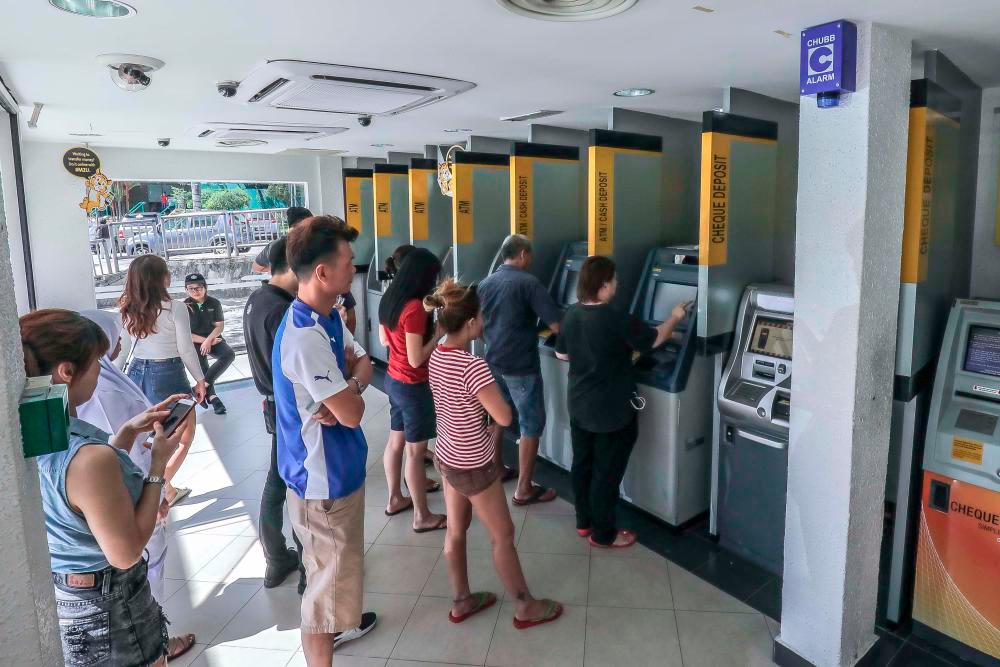MORE and more Malaysians are feeling the pinch from the Covid-19 pandemic and inflation. They complain that their monthly salaries are insufficient to purchase even daily necessities and pay bills.
Although the inflation rate has eased from 4% in November 2022 to 3.8% in December 2022, the prices of food and beverages are higher than in pre-pandemic days. Rice, bread and other cereals, meat and milk, cheese and eggs are among the three food and beverage sub-categories that recorded more than 7% increase in inflation in December last year.
The ongoing Russia-Ukraine war has put Malaysia in a
more vulnerable position. Since becoming an industrialised nation in the 1970s, Malaysia has been unduly dependent on imported food due to a lack of land for agricultural development.
Notwithstanding, industrialisa-tion speeds up the development of cities like Kuala Lumpur, Georgetown, Johor Bahru, Kota Kinabalu and Kuching. Yet, Malaysia remains stuck in a low-wage, low-cost economic model, with a high influx of low-skilled foreign labours.
During a recent interview, Deputy Human Resources Minister Mustapha Sakmud stated that his salary was only RM1,800 per month despite engineering already emerging as a highly skilled profession in 1993. When his son graduated from engineering in 2019, the starting salary increased merely by 28% (i.e. RM2,300) compared with two decades ago.
My friend working as an ophthalmologist in a public hospital mentioned that he only earned RM14 per hour when working overtime or on call for 24 hours during weekdays. And it is worse during weekends, at only RM9 per hour.
How are graduates going to survive with the increasing cost of living if employers do not give increments? How are employees going to manage their expenses with shrinking disposable income?
Many contract medical officers are leaving the country due to low wages, inadequate public hospitals and clinic facilities and bleak career prospects.
Young Malaysians who pursue degrees overseas are also opting not to return, preferring to work overseas because of better opportunities and salaries compared with Malaysia.
As many skilled and talented Malaysians opt for greener pastures, Malaysia is facing a serious issue of brain drain.
The Human Resources Ministry indicated that Singapore has almost one million Malaysian workers, followed by Australia, the US, the UK and Canada.
Recently, Bank Negara Malaysia stated that the living wage for an employee based in Kuala Lumpur was RM2,700 as of 2018. It is not surprising that the current living wage has only risen 25% (i.e. RM3,375).
Before leaving my previous job as a public policy researcher at Emir Research, I mentioned during my interview with Astro Awani that the optimal living wage in my home state Sabah is RM3,000.
Kota Kinabalu, the hometown where I am from, does not have a proper public transportation system until today. The locals have to own a car to travel around.
With a four-time increase in the overnight policy rate last year, those who have housing and car loan installments had to fork out extra few hundred ringgit to make monthly payments.
In addition, the food in Kota Kinabalu is relatively more expensive than in Kuala Lumpur.
While Prime Minister Datuk Seri Anwar Ibrahim has repeatedly emphasised that his top priority is to resolve the cost of living issue, he should also look into the living wage, which is the actual cost of living among Malaysians.
Bank Negara Malaysia defines living wage in its report “The living wage: Beyond making ends meet” (2018) as the level of salary needed by a person to afford a minimum acceptable living standard.
As more middle-income earners fell into the lower-income category during the pandemic, there is growing concern that more Malaysians will be able to barely cover their basic needs.
Some Malaysians are experiencing difficulties in coping with the rising cost and recently pleaded with the government to allow another round of Employees Provident Fund withdrawal.
Economy Minister Rafizi Ramli acknowledges the issue of insufficient high-skilled and
high-paid job opportunities. Nonetheless, to ensure that
high-skilled jobs are associated with good remuneration packages, he has to look at existing labour laws and revise them accordingly.
In particular, the Employment Act 1955 provides for a time-based wage system instead of productivity-linked.
Adopting a productivity-linked wage system would raise the overall salary level, boost employees’ morale and be more reflective of the current standard of living.
Malaysians will be less likely to seek better job opportunities elsewhere if they can secure high-skilled, high-income employment within the country.
Amanda Yeo is Senior Fellow at Pacific Research Centre. Over the past five years, she gained extensive working experience in the Sabah state government and civic society. Comments: letters@thesundaily.com









